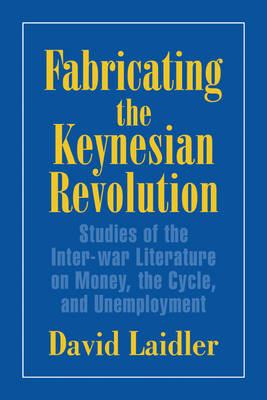Historical Perspectives on Modern Economics
1 total work
Examining the emergence, in the inter-war years, of what came to be called 'Keynesian macroeconomics'. This study accepts the novelty of the latter, as represented by the IS-LM model, which in various forms came to dominate the sub-discipline for three decades. It argues, however, that this model did not represent a radical change in economic thinking but rather an extremely selective synthesis of those which had permeated the preceding literature, including Keynes's own contributions to it, not least the General Theory. Hence the book questions the appropriateness of thinking of this development as the outcome of a 'Keynesian Revolution' in economic thought, partly because the most radical aspects of Keynes's own intended contribution were excluded from it, but mainly because IS-LM is better viewed as the end result of twenty years or more of intellectual development to which many others besides Keynes contributed.
